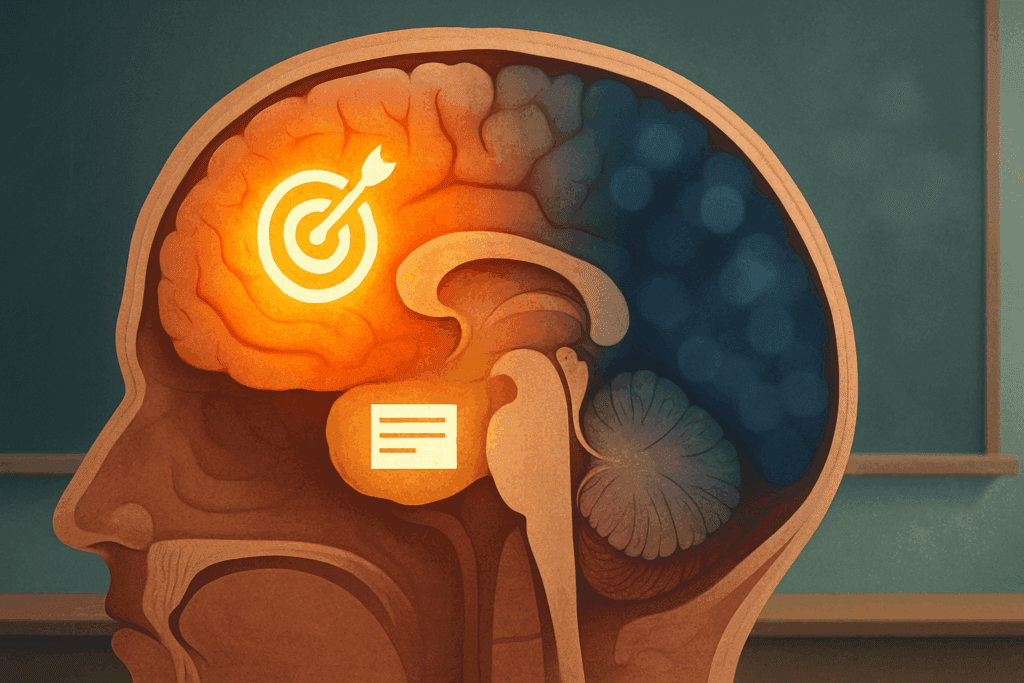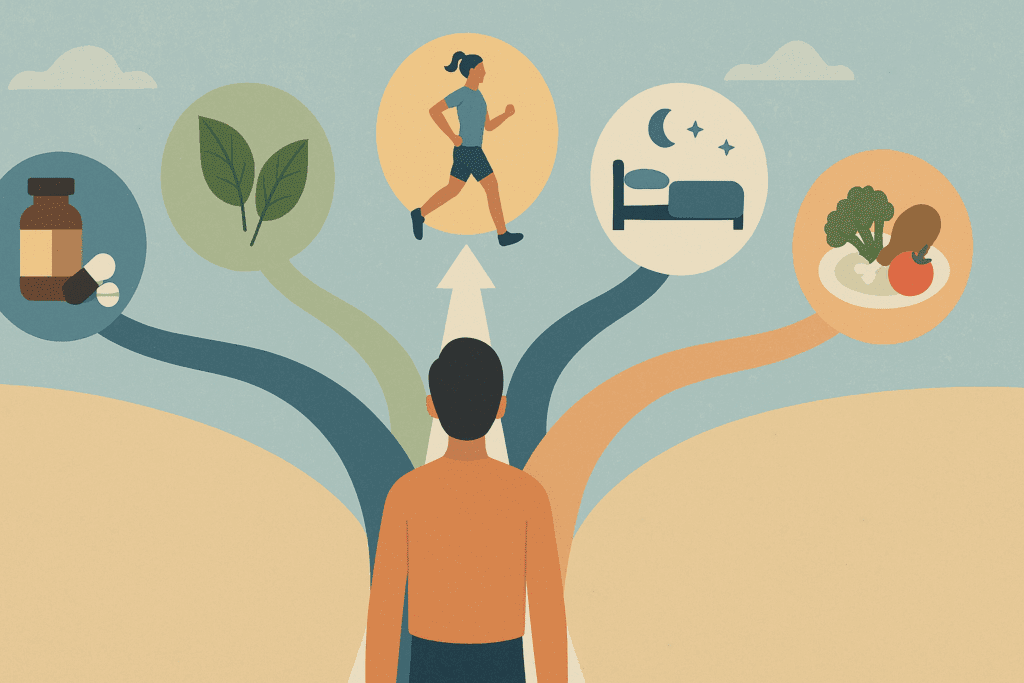Introduction: Understanding the Connection Between Memory and ADHD Treatment
Memory is an essential part of learning, attention, and executive function—all of which can be affected by Attention-Deficit/Hyperactivity Disorder (ADHD). Many individuals diagnosed with ADHD report difficulty recalling instructions, retaining details from reading, or keeping track of tasks. As ADHD medications have become a frontline treatment, a pressing question has emerged: does ADHD medication help with memory? In this comprehensive article, we explore what science says about this topic and highlight which natural herbs may support brain function and cognitive clarity.
You may also like: Best Herb for ADHD Support: How Natural Remedies and Herbs for ADHD Women May Help Boost Focus and Calm
In today’s fast-paced, cognitively demanding environment, the ability to retain, retrieve, and apply information swiftly is crucial. Whether students are searching for how to memorize something in 10 minutes or adults are seeking ways to remember information for a test, understanding how ADHD treatments influence memory is of growing interest. Through medically accurate explanations, peer-reviewed research, and evidence-based insights, we’ll also explore complementary natural options that may enhance memory and attention—especially for those looking to optimize cognitive performance holistically.

How ADHD Affects Memory and Information Processing
ADHD impacts multiple brain regions associated with executive function, including the prefrontal cortex, which plays a vital role in working memory, attention regulation, and planning. Individuals with ADHD often experience challenges with both short-term and long-term memory, especially when tasks require sustained attention or multi-step instructions. These memory lapses can significantly interfere with academic performance, daily responsibilities, and social interactions.
The mechanisms behind memory impairment in ADHD are complex. Dopamine and norepinephrine deficiencies are common in ADHD brains, leading to under-activation in areas responsible for information encoding and recall. Consequently, even when an individual is intellectually capable, their ability to remember things while studying or during an exam may be compromised due to attentional drift. When people search for strategies like how to memorize things fast for exam success, they are often trying to bypass these neurological barriers.
Furthermore, emotional regulation difficulties linked to ADHD can also affect memory. High levels of stress or anxiety—frequent companions of ADHD—can inhibit the brain’s capacity to consolidate and retrieve information. Understanding these interplays provides a foundation for evaluating whether pharmaceutical interventions truly improve memory or merely enhance attention, thereby indirectly aiding memory performance.

Does ADHD Medication Help with Memory? A Scientific Perspective
The central question remains: does ADHD medication help with memory? Numerous studies have examined the effects of stimulant medications such as methylphenidate (Ritalin) and amphetamine salts (Adderall) on memory performance in individuals with ADHD. These medications primarily increase dopamine and norepinephrine levels in the brain, which in turn can enhance attention span, reduce impulsivity, and improve task persistence.
While the primary goal of these medications is to improve attention, there is growing evidence suggesting they may also benefit certain aspects of memory. For example, a 2020 meta-analysis published in the journal Neuropsychology Review found that stimulant medications had a modest but significant positive effect on working memory in children and adults with ADHD. This finding lends support to the belief that do ADHD meds help with memory is not merely anecdotal—it has a foundation in empirical research.
However, it’s important to note that not all types of memory improve equally. Working memory, which involves holding and manipulating information over short periods, tends to show the most consistent improvement. In contrast, long-term memory consolidation does not appear to benefit as significantly. This means that while ADHD meds may help students retain instructions during a lecture or remember a phone number briefly, they may not directly improve the ability to memorize something overnight or to retain information long-term without additional reinforcement strategies.
Indirect Memory Benefits of ADHD Medications
Even when ADHD medications do not directly enhance long-term memory encoding, they can produce indirect benefits that improve overall academic and professional performance. When individuals can sustain attention more effectively, they are better able to encode information in the first place. This enhanced attentional control may lead to a perception that does ADHD medication help with memory—even if the true mechanism is improved focus rather than memory alteration per se.
In educational settings, this distinction matters. Students preparing for exams often search for how to memorize something for a test or how to remember what you read for exams. When their attention is more focused, they are more likely to employ effective study techniques and repetition methods that facilitate memory retention. ADHD meds thus serve as an enabling tool rather than a direct cognitive enhancer.
This is particularly useful for adults returning to school or professionals preparing for certification exams. Many of these individuals struggle with remembering large amounts of technical information and are exploring whether ADHD treatments can offer an edge. For them, understanding how to memorize for exams in a focused, distraction-free state becomes as important as the content itself.

Limitations and Potential Side Effects
While ADHD medications have demonstrated potential benefits for memory through improved attention, they are not a universal solution. Responses to medication vary, and some individuals may experience side effects such as insomnia, appetite suppression, or increased anxiety—all of which can negatively affect memory. Poor sleep, for instance, impairs memory consolidation, which is essential when learning how to memorize something in 10 minutes or overnight.
Moreover, the long-term cognitive effects of stimulant use remain an area of ongoing research. Some experts caution against over-reliance on medication without complementary behavioral strategies or lifestyle adjustments. Especially among college students who misuse stimulants as study aids, there is a risk of diminishing returns or dependency. For these reasons, it is crucial to view medication as one piece of a broader cognitive enhancement strategy.
Given these caveats, many individuals turn to alternative or complementary methods, such as nutrition, cognitive training, and herbal supplementation. These strategies may offer additional support for those wondering how to remember stuff when studying or how to memorize things fast for exam preparation.
Natural Herbs That May Support Memory and Cognitive Clarity
For individuals interested in holistic cognitive support, several natural herbs have shown promise in supporting memory and focus. While these herbs are not substitutes for ADHD medications, they may offer supplemental benefits, especially when combined with healthy lifestyle choices. Let’s explore a few of the most evidence-backed options.
1. Bacopa Monnieri: Traditionally used in Ayurvedic medicine, Bacopa has been studied for its cognitive-enhancing properties. It appears to support working memory and attention, particularly in older adults and students under cognitive stress. Clinical trials have shown improvements in memory recall and retention after consistent use for 8-12 weeks. For those trying to figure out how to memorize for a test or remember things while studying, Bacopa may offer long-term benefits.
2. Ginkgo Biloba: Known for its circulatory-enhancing effects, Ginkgo may improve blood flow to the brain and protect against oxidative stress. Research suggests it may aid memory and cognitive performance in both healthy individuals and those with cognitive decline. Ginkgo is often recommended for individuals searching for how to memorize something in 10 minutes, as it may provide mild acute benefits in focus and information recall.
3. Rhodiola Rosea: This adaptogenic herb helps the body resist physical and mental fatigue. It has shown promise in improving attention, mood, and mental clarity, especially under conditions of stress. Students studying for long hours often find it useful for maintaining energy and mental sharpness, key for retaining information during intensive review sessions.
4. Panax Ginseng: Ginseng is associated with improved cognitive performance, particularly in tasks requiring memory and sustained attention. Its effects are thought to stem from its ability to modulate neurotransmitters involved in cognition. People trying to remember information for a test or seeking help with how to remember what you read for exams might benefit from short-term supplementation.
5. Lion’s Mane Mushroom: A newer entry in the world of nootropic herbs, Lion’s Mane contains compounds that may stimulate nerve growth factor (NGF), promoting brain cell regeneration. Emerging research suggests potential for enhancing memory and neuroplasticity. It’s gaining popularity among those interested in how to remember stuff when studying without relying solely on medication.

Dietary and Lifestyle Factors That Enhance Memory and Attention
Beyond herbs and medication, nutrition and lifestyle play critical roles in supporting brain health. Omega-3 fatty acids, found in fatty fish and walnuts, are vital for synaptic function and neurotransmitter activity. A diet rich in antioxidants from fruits and vegetables helps reduce inflammation, which can impair cognitive performance. For those learning how to memorize things fast for exam scenarios, a well-balanced diet provides the necessary biochemical support.
Sleep hygiene is equally essential. Deep sleep, especially REM cycles, is when the brain consolidates short-term memories into long-term storage. Inadequate sleep diminishes cognitive function, reducing one’s ability to retain and retrieve information. Whether someone is trying to memorize something overnight or recall complex data during a test, consistent, quality sleep can make a substantial difference.
Regular physical activity also enhances memory by increasing blood flow to the brain and promoting the release of brain-derived neurotrophic factor (BDNF). Even a brisk walk can improve mental clarity and retention. Meditation and mindfulness, meanwhile, help regulate stress and improve attention span—key components for remembering information effectively.
Building a Holistic Memory Support Strategy
The answer to whether does ADHD meds help with memory is nuanced. For many, these medications can improve memory indirectly by enhancing focus and reducing distractibility. However, they are not a panacea and may be complemented by other approaches. A holistic strategy that includes natural herbs, a balanced diet, adequate sleep, stress management, and physical activity can provide a broader foundation for cognitive health.
Furthermore, effective study habits are indispensable. Techniques such as spaced repetition, active recall, and visualization can enhance memory retention regardless of one’s medication status. For students and professionals alike, learning how to remember things while studying often involves not just what you take, but how you learn.
Instead of relying on a single method, combining multiple approaches can yield more sustainable and effective results. Someone wondering how to memorize for exams or how to remember stuff when studying will benefit most from an integrated plan that reflects their unique cognitive strengths and lifestyle needs.

Frequently Asked Questions: ADHD Medications and Memory Support
1. Can ADHD medications improve memory for people without an ADHD diagnosis?
While ADHD medications are specifically designed for those with a clinical diagnosis, they are sometimes used off-label by individuals without ADHD to enhance focus. However, evidence supporting the idea that these medications improve memory in neurotypical individuals is limited. Studies suggest that while attention may improve temporarily, long-term memory benefits are negligible. It’s important to understand that asking “does ADHD medication help with memory” is context-dependent. In non-ADHD brains, stimulants may overstimulate certain pathways, potentially leading to reduced cognitive flexibility or memory distortion over time.
2. Are there specific types of memory that ADHD meds affect more than others?
Yes, most research indicates that ADHD medications predominantly improve working memory rather than long-term memory. Working memory allows you to hold and manipulate information over short periods, such as remembering a phone number long enough to dial it. The question of “do ADHD meds help with memory” should be reframed to reflect this nuance—they aid memory primarily by supporting focus and short-term processing. However, episodic and semantic memory (facts and events stored long term) are less influenced by these medications. Using ADHD medications effectively often involves coupling them with memory-enhancing study techniques.
3. How do ADHD medications affect memory in older adults with late-diagnosed ADHD?
Late diagnosis of ADHD in older adults is more common than previously thought. In such individuals, the benefits of ADHD medication on memory can vary depending on the extent of age-related cognitive decline. When considering whether “does ADHD meds help with memory” in this group, it’s essential to factor in neurodegenerative changes. Some may experience improved memory via enhanced attention, while others may find medications less effective due to changes in brain plasticity. Regular cognitive training and diet may further support memory in this demographic.
4. Can long-term use of ADHD medication lead to memory dependence or decline?
There is currently no strong evidence that properly prescribed ADHD medications lead to memory dependence. However, chronic use without proper oversight may lead to tolerance, where the effectiveness diminishes over time. It’s reasonable to ask, “does ADHD medication help with memory in the long term?” but it’s equally important to ask whether it continues to do so consistently. Lifestyle choices, like sleep quality and nutrition, remain critical in maintaining memory function. Periodic reassessment with a healthcare provider is advised to ensure long-term effectiveness without cognitive trade-offs.
5. What role does emotional regulation play in how ADHD meds affect memory?
Emotional dysregulation is common in ADHD and can impair memory consolidation. ADHD medications may indirectly improve memory by stabilizing mood and reducing stress, which interferes with information retention. Therefore, answering the question “does ADHD medication help with memory” must include its emotional benefits. A calmer mind is more conducive to learning and recall. Emotional balance allows the brain to process information more effectively, creating the right conditions for strong memory formation.
6. Are there memory training techniques that enhance the effects of ADHD medication?
Yes, combining cognitive strategies with medication can significantly amplify memory improvement. Techniques such as chunking, visualization, and spaced repetition align well with the focus-enhancing effects of ADHD medications. When asking, “do ADHD meds help with memory,” it’s helpful to consider these synergies. Memory training strengthens neural connections, making it easier to encode and retrieve information. This is especially beneficial for students and professionals managing heavy cognitive loads.
7. Do ADHD medications impact memory differently in children compared to adults?
Children and adults metabolize medications differently, and their cognitive systems are at different developmental stages. In children, the answer to “does ADHD medication help with memory” often manifests as improved classroom performance and task follow-through. Adults, however, may experience more nuanced benefits, such as better strategic planning or improved verbal memory. Side effects also vary, with children more susceptible to appetite and growth-related concerns. Age-specific monitoring is crucial to ensure safety and cognitive benefit.
8. Can ADHD medications enhance procedural memory, such as learning new skills?
Procedural memory refers to the ability to learn and perform tasks like riding a bike or typing. ADHD medications may enhance the focus needed to practice these tasks effectively, but they don’t directly influence procedural memory formation. When evaluating whether “does ADHD meds help with memory,” it’s vital to distinguish between types of memory. While better attention aids skill acquisition, the actual consolidation of procedural memory depends more on repetition and motor practice. Adequate rest and consistent rehearsal remain the most important factors in mastering skills.
9. What lifestyle factors can strengthen the memory benefits of ADHD medications?
Sleep, hydration, exercise, and diet all play critical roles in memory consolidation. Even if someone wonders, “do ADHD meds help with memory,” they must consider whether their lifestyle supports or hinders cognitive function. Sleep is particularly crucial, as many ADHD medications can cause insomnia if taken too late in the day. Physical activity boosts brain-derived neurotrophic factor (BDNF), which enhances learning and memory. Eating nutrient-dense foods, such as leafy greens and omega-3-rich fish, complements the cognitive support offered by medications.
10. How is the future of ADHD medication evolving in terms of memory enhancement?
Emerging treatments are focusing on more targeted neurotransmitter modulation to enhance memory without overstimulation. As neuroscience advances, newer compounds may address both attention and memory deficits more precisely. In this evolving landscape, the inquiry “does ADHD medication help with memory” is likely to take on new dimensions. Future treatments may also integrate digital cognitive training platforms and personalized pharmacogenetic testing. These innovations promise to refine how medications are used to support memory, offering more individualized and effective outcomes.

Conclusion: What This Means for Memory, Focus, and Natural Brain Support
So, does ADHD medication help with memory? The evidence suggests that while these medications primarily improve attention, they can indirectly enhance working memory by facilitating better encoding of information. However, they are not a universal solution, and their effectiveness varies by individual. They should be used mindfully and ideally as part of a comprehensive cognitive support plan.
For those seeking additional or alternative ways to enhance memory and focus, natural herbs such as Bacopa Monnieri, Ginkgo Biloba, and Lion’s Mane offer promising benefits backed by science. Likewise, lifestyle choices such as nutritious eating, quality sleep, physical exercise, and mindfulness practices can make a profound difference.
Ultimately, whether your goal is to remember what you read for exams, figure out how to memorize something for a test, or simply learn how to memorize something in 10 minutes, understanding the full spectrum of tools available—from pharmaceutical to natural—empowers you to take control of your cognitive health with clarity and confidence. By applying these strategies thoughtfully, individuals with ADHD and anyone aiming to optimize brain performance can unlock new levels of memory, attention, and mental clarity.
Further Reading:
Does ADHD medication help with cognitive function? Study offers insight
The effects of stimulant medication on working memory functional connectivity in AD/HD


